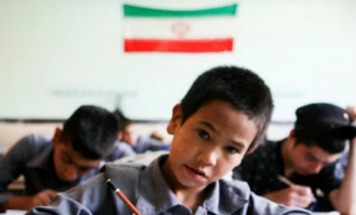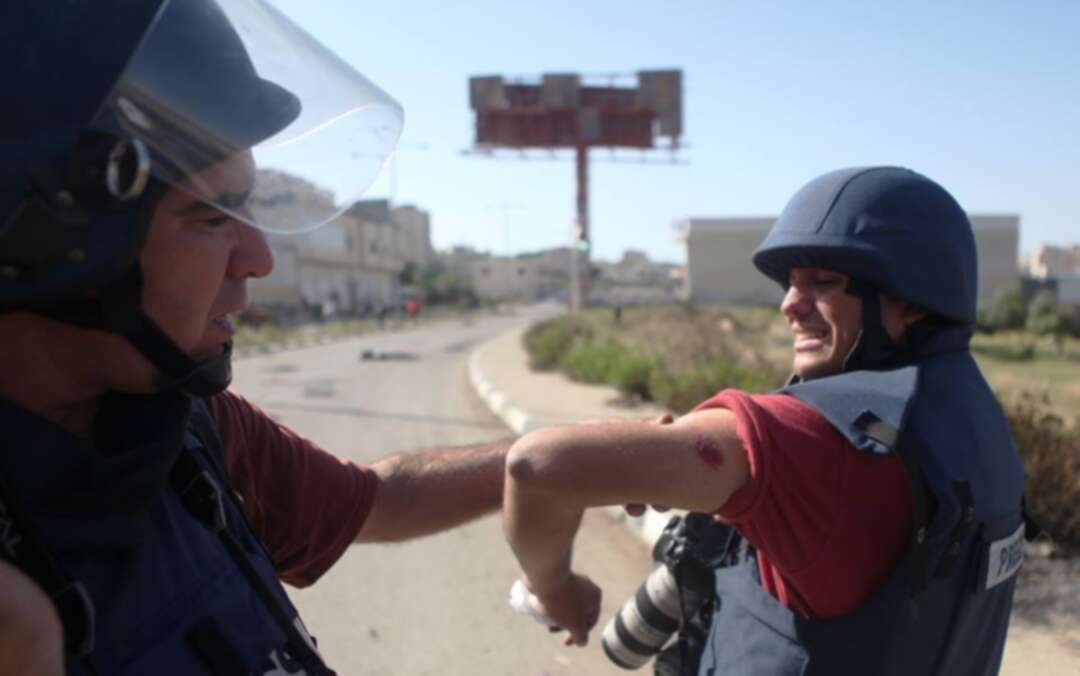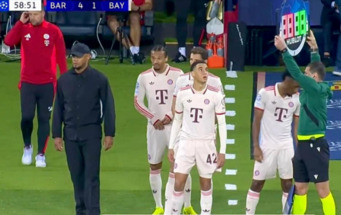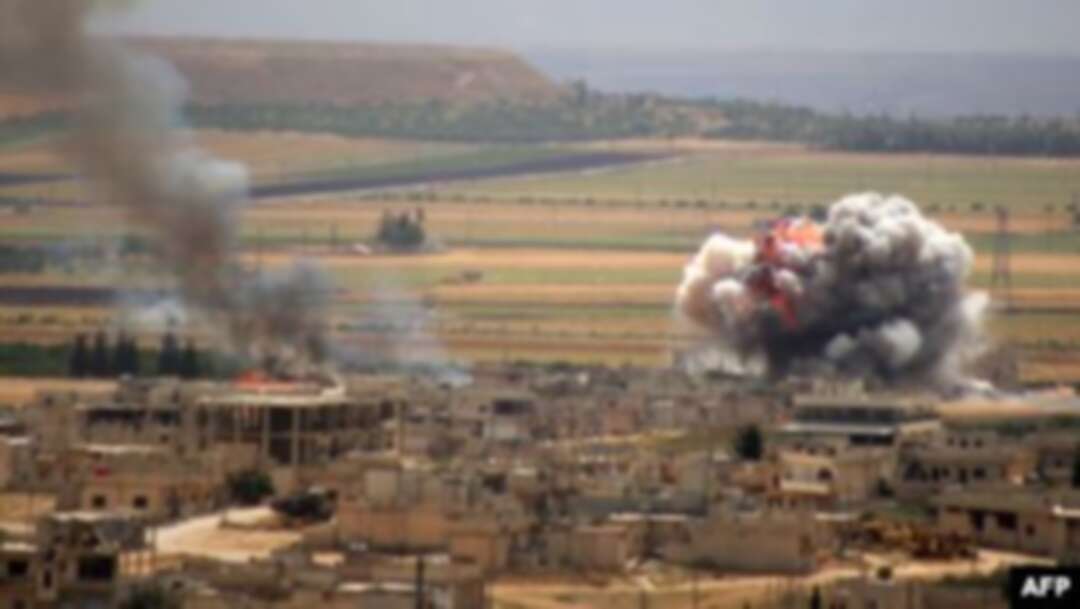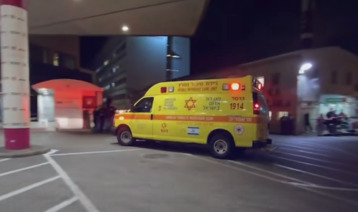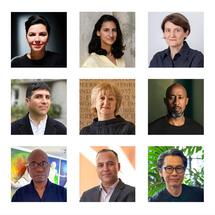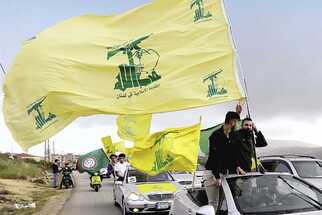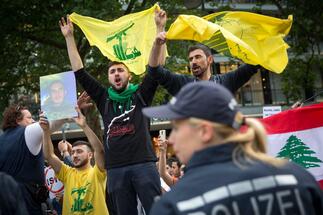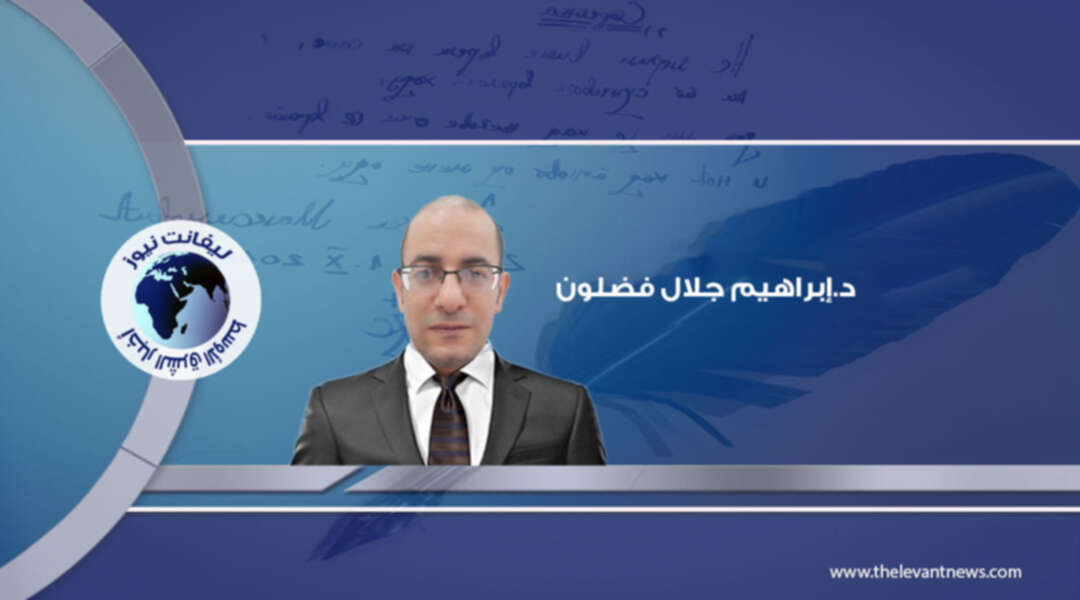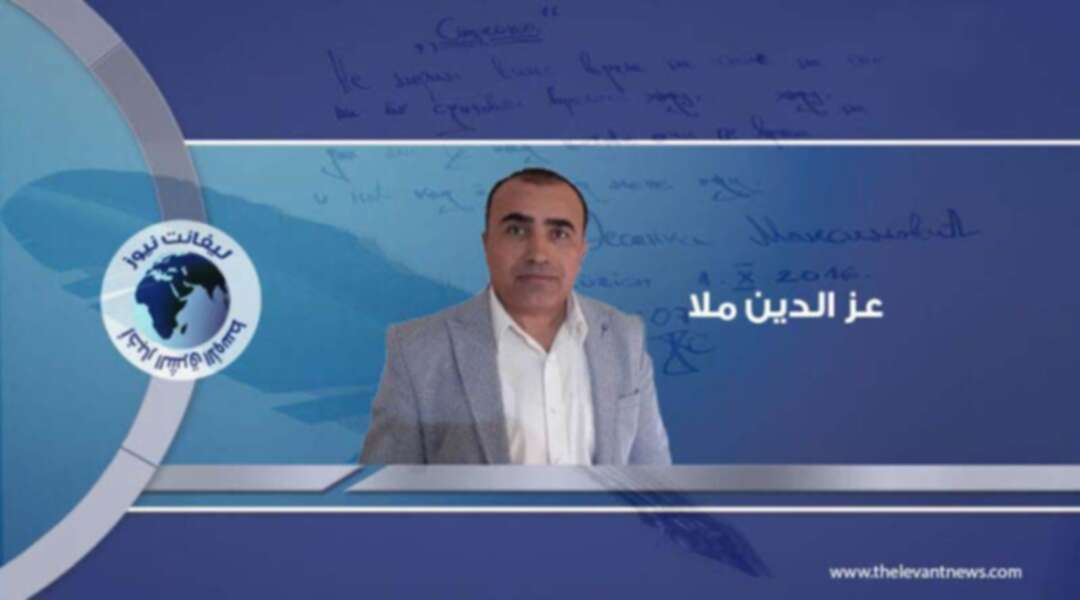-
THE SEARCH FOR SYRIA’S MISSING
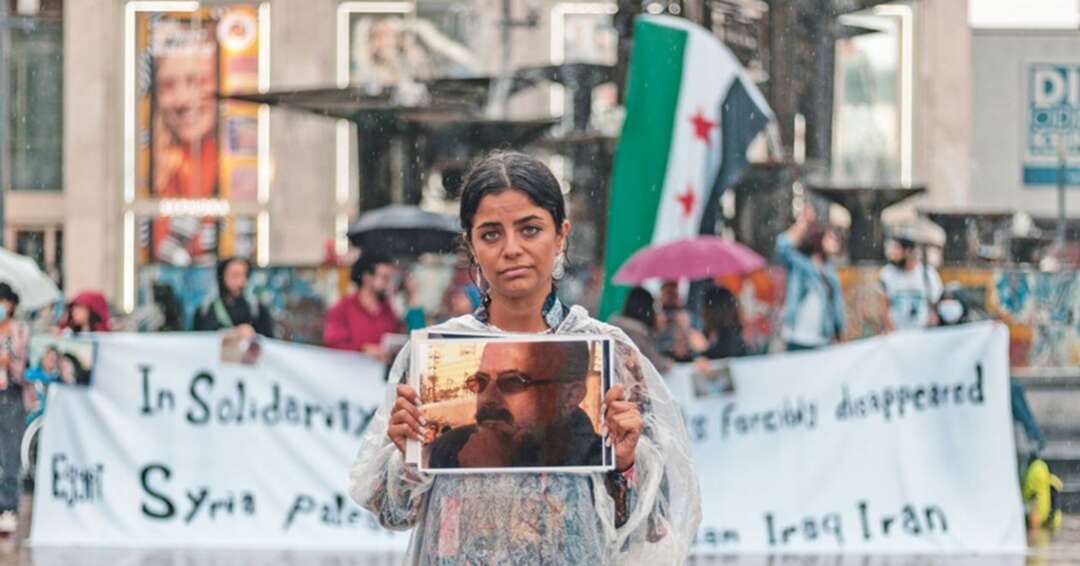
As conflict in Syria fades from the headlines, Jan-Peter Westad reports on the dogged international efforts to find missing persons, spearheaded by the families of the disappeared.
The day began like any other. Mohamad al-Sheikh, then aged 14, walked to school with his father in their home town of Moudamiah al-Sham, near Damascus. He had his lessons, chatted with friends, went home and watched some television while his mother prepared dinner. When Mohamad’s father, Ahmad, didn’t come home from his work as a business relationship manager for a local branch of the Swiss transnational Nestlé, they began to worry.
Ahmad would always ring if he was running late, but that evening the family heard nothing. ‘Both my mother and I had a terrible feeling,’ remembers Mohamad. ‘We went outside and saw two cars at the end of our road. Then we heard gunshots and I was sent inside the house.’ Neighbours later told them they had seen security agents bundle Ahmad into one of the cars. It was 7 May 2012 and the last time Mohamad saw his father alive.
It is a bitter truth that this kind of story is heartbreakingly common in Syria. Since the revolution began in March 2011, more than 130,000 people are believed to be missing. There are a number of reasons people disappear. Combatants and civilians are missing as casualties of war. Others have been kidnapped and detained, or executed and buried in mass graves.
Still more have been lost along the migrant routes. The majority, tens of thousands of people, are thought to have been detained and forcibly disappeared by the government of Bashar al-Assad. ISIS and other militia groups – including those supported by Western powers – have also taken, tortured and killed prisoners. With fighting dragging on for nearly a decade, encompassing almost the entire country, the missing come from all sides.
Right from the first days of the revolution, joining the demonstrations, criticizing the authorities, or being suspected of either, was enough to get arrested. Mohamad, who once saw his father with a kitbag full of medical supplies, believes Ahmad’s support for protesters may have been the cause of his arrest, though his father was careful to keep any revolutionary activities a secret from his family.
He was afraid of endangering us,’ says Mohamad. As with nearly all cases of those detained, when the family tried to get information out of the authorities, they denied holding Ahmad. When the country descended into full-blown war, Mohamad, his mother and three sisters had no choice but to flee, first to nearby Drosha (a suburb of Damascus), then to Egypt, before finally settling in Germany.
LIVES SPLIT IN TWO
Mohamad, who now studies economics in Munich, remembers the anger he felt at seeing life carrying on as normal in Europe while his own home country was being destroyed and his father was gone. ‘When someone you are close to is missing, you live two lives,’ he says. ‘One part of you is always waiting for this person, wanting to hear anything about them. On the other hand, you have to work. You have to study. You have to meet people. You have to go on. This is the hardest thing.’
All the families I speak to mention this double existence. They describe the same difficulty of settling into new lives, sometimes on another continent, while also being tied to the moment when their loved ones disappeared by their memories and their search for answers.
Their emotions are complicated by the fact that Syria is still reeling from the effects of war, particularly in Idlib, the last major anti-government area in northwest Syria, which was under siege from April 2019 until a ceasefire was agreed in March 2020. While the ceasefire has largely held, the extent of the violence meted out against the Syrian people is still being uncovered.
In October 2020, Human Rights Watch published a 167-page report detailing evidence of war crimes perpetrated by the Syrian-Russian alliance during the Idlib siege. It highlights dozens of air and ground attacks on civilian areas – striking homes, schools, hospitals – and cites the use of ‘cluster munitions, incendiary weapons, and improvised “barrel bombs” in populated areas to deadly effect’. At least 1,600 civilians are thought to have been killed and 1.4 million displaced.
The latest report from the UN’s Commission of Inquiry on Syria, covering the period of January-July 2020, found that ‘Syrians continue to be killed, on a daily basis, and to suffer gross human rights violations at the hands of all actors controlling territory in Syria’, including ‘arbitrary detention, enforced disappearances, torture and deaths in custody’.
With millions in need of immediate assistance, advocating for those who have been missing for years is not always easy. Fatigue in the Western media is clear to see. Defeated rebels who have played a role in torture and disappearances flee the country. At the same time, Assad, with the backing of Russia, looks to have secured his presidency.
Families left behind worry perpetrators may never go on trial and that, if they do, it may not be for decades. Even as we get closer to the full extent of the crimes against innocent Syrians being revealed, there is a risk of history being lost or rewritten. In this context, recording testimony and fighting for the memories of those gone becomes an important act of resistance in the long process of justice.
Spearheading attempts to locate missing Syrians are a network of family associations and the International Commission on Missing Persons (ICMP), an intergovernmental organization based in The Hague. The first stage is to collect and process data on missing persons in a central repository, so that it can support investigations. The aim is to find all missing persons, regardless of their background, circumstances or location of their disappearance, and to ensure a future peace agreement in Syria establishes mechanisms to enable this search.
‘First and foremost, we are preparing the ground for a process of finding missing persons that is in line with the rule of law and will lead to accountability,’ Lena Alhusseini, head of ICMP’s Syria programme, explains. In the best-case scenario, perpetrators of disappearances would face trial and the missing would be located and reunited with their families, whose rights to justice, truth and reparations would be fully met. But the reality is that many of those gone will not return alive. At that stage, a process of DNA identification of bodies is necessary. Irrefutable evidence of identity – provided by DNA analysis – is critical to secure rights to justice, and to property claims and custody of children. At the very least, it offers the families hope for some form of closure.
With Assad’s control looking more assured, this may sound like an idealistic proposition, but the programme builds on previous successes where the odds seemed insurmountable. ICMP was created in 1996 in the aftermath of the Yugoslav wars. It played the central role in documenting the Srebrenica genocide, when more than 8,000 Bosnian Muslim men and boys were murdered by the Bosnian Serb army.
Despite concerted attempts to hide the bodies – including disturbing mass graves with bulldozers and reburying body parts miles apart – more than 90 per cent of those killed have since been identified using DNA and the process continues today, 25 years on. ICMP’s findings were used as evidence in numerous successful criminal trials in The Hague.
With genocide denial on the rise among the Serb population of Bosnia, the work of ICMP and the voices of families are as important today as they ever have been. ‘It is unimaginably painful to be in Srebrenica,’ Munira Subasic, president of the Mothers of Srebrenica organization, told me ahead of the 25th anniversary of the genocide in July 2020. Munira lost more than 20 family members in the Bosnian war. Even today, she is haunted by seeing many of the perpetrators who have never faced justice on the streets of the town. ‘Srebrenica is a living genocide and it is denied just like the killings of our loved ones were denied.’
THE DATA COLLECTORS
Syria’s case presents its own distinct challenges. Fighting has led to the internal displacement of 6.6 million Syrians. A further 5.6 million are now refugees. With so many people separated from their homes and families, finding the missing is a global task. ‘We only take information in person from close family members. This means we have to work in Syria, but also Lebanon, Iraq, across the Middle East and Europe,’ says Lena.
Despite the difficulties, progress is being made. More than 14,000 names have been collected in the past 18 months alone.
The process of data collection is a careful one, particularly in Syria, where reporting cases risks reprisals from armed groups or Syrian intelligence. Mahmoud Aswad, who was an orthopaedic surgeon in Idlib before the war, now works with ICMP to find and train data collectors within Syria. Mahmoud’s own uncle went missing from Idlib in 2018, most probably taken by one of the armed groups in the area. He says choosing the right person is the most important factor. ‘We locate people who are respected in the communities – teachers, lawyers, doctors, engineers. They have to be trusted and have good networks so that they hear of cases and people feel comfortable coming forward.’
Once selected, these data collectors are trained to record information responsibly and accurately, which is then uploaded to ICMP’s secure, confidential database in The Hague. Families have sole ownership of the information and can choose to update or remove their files anytime. It is also paramount to be realistic and not raise expectations. ‘We always make clear that this is a long process that could take 10 or 20 years, or may produce no results at all,’ says Mahmoud. It is difficult work. Mahmoud tells me colleagues have quit due to a lack of obvious progress towards justice. ‘A lot of Syrians are totally frustrated. They feel human rights abuses are only important when it suits the politics of Western countries. But our duty is to keep on educating people about their rights now and in the future.’
WHY THE TRUTH MATTERS
Wafa Ali Mustafa understands this frustration only too well. Her father, Ali, disappeared from Damascus more than seven years ago. Since that time, Wafa, now 30, has become one of the most vocal campaigners for justice with the organization Families for Freedom. In July 2020, she gave evidence to the UN Security Council, expressing concerns about what the families view as an abdication of responsibility. While the Council acknowledged the seriousness of the situation, no action has been taken. ‘We are calling for the UN Security Council to pass a resolution on detention and enforced disappearance in Syria,’ says Wafa. ‘This would make a real difference, but there doesn’t seem to be a will to actually enact change.’
But there are also some more encouraging developments. Families for Freedom members travel throughout Europe demonstrating in major cities – London, Berlin, Brussels – with pictures of their loved ones. More recently, Wafa has found herself demonstrating outside the main court of Koblenz in Germany where two former Syrian security officials are facing trial. It is the first trial for Syrian state torture in the world.
Witness statements from family members have helped reveal to the world the extent of the torture undertaken by Assad’s intelligence services. So, too, have statements from former security officials. On 9 September 2020, the court heard from a government undertaker – referred to as ‘Z’ to protect his family in Syria – tasked with burying the bodies of dead detainees. He told the court of ‘rivers of blood and maggots’ and corpses disfigured to the point of being ‘unrecognizable’. His testimony shows that killings were not random acts by wayward officers, but crimes that were systematic and organized by state authorities.
The revelations currently coming out of Koblenz will come as no surprise to Mohamad, who finally learned in 2015 that his father Ahmad had been killed in custody. Ahmad was one of the victims identified in more than 54,000 photographs leaked by a military defector known as Caesar. Many of the photos showed bodies of detainees killed after torture. Mohamad doesn’t have the words to describe how he felt searching for his father among them. ‘Before that moment, the worst thing was imagining my father was dead,’ he says. ‘But after seeing the suffering in those photos, I hoped he was dead so that he could be at peace.’
Learning of his father’s fate has only hardened Mohamad’s resolve to ensure the memories of those missing are not forgotten – not just for himself, but for future victims. As with Srebrenica, he worries that the narrative of the Syrian conflict is already being distorted and simplified to become a story of a ruling government against radical terrorists. ‘I think the people responsible for killing my father are the same people who have tried to change the image of the Syrian people. We must not let that happen. If we do not remember the people who are gone, we will let others experience the same tragedy.’
The work of the families and their supporters does not just provide testimony to help locate loved ones and prepare for future legal challenges. It shows that uncovering and preserving the truth is a difficult, constant and sometimes thankless task, especially during a fast-moving and hugely complex conflict. The fighting in Syria may have all but stopped, but with the country entering its next chapter, the vigilance of those tirelessly documenting Syria’s missing sets an important example for all.
source: Jan-Peter Westad
Levant
You May Also Like
Popular Posts
Caricature
Qatar Closes Hamas Office...
- November 11, 2024
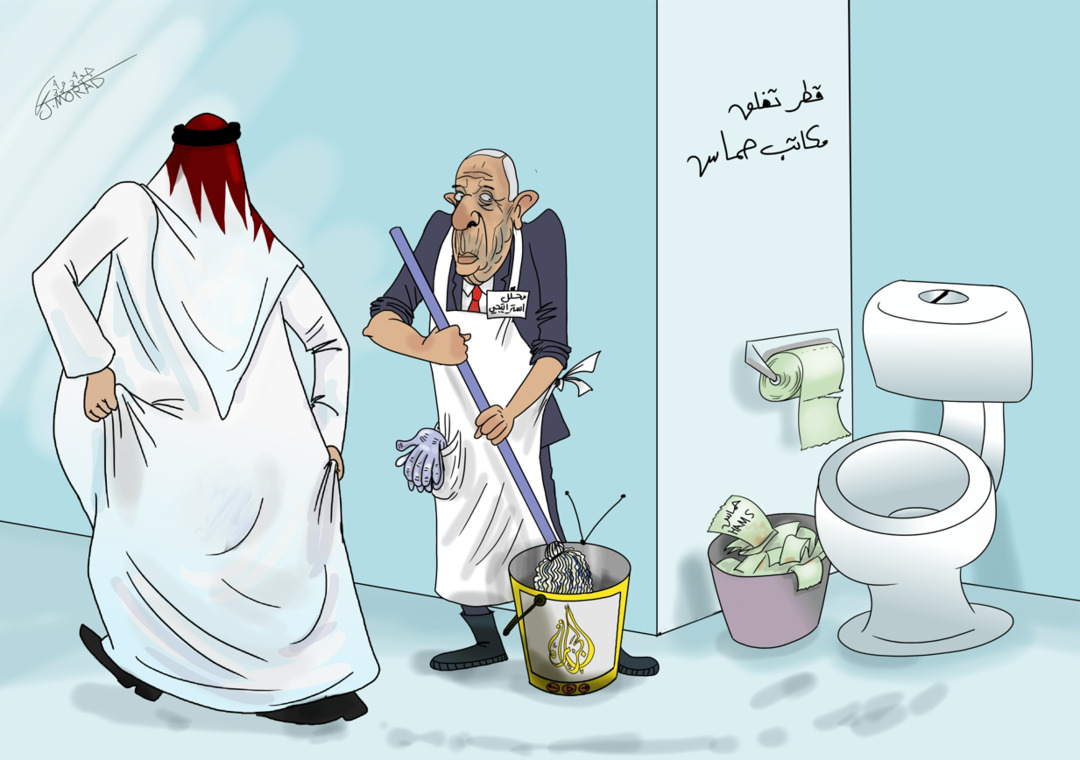
Qatar Closes Hamas Offices
opinion
Report
ads
Newsletter
Subscribe to our mailing list to get the new updates!

